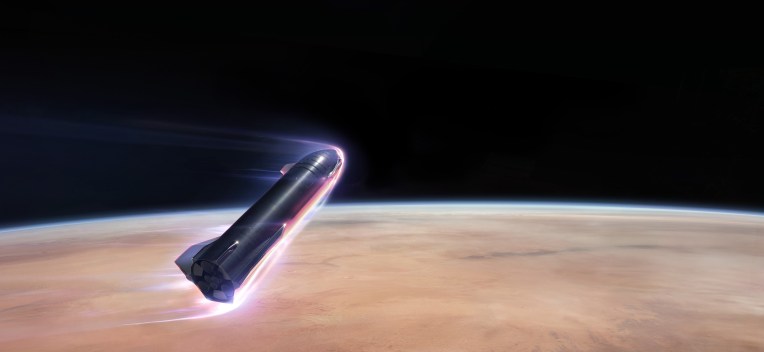
SpaceX founder and CEO Elon Musk was given an award from media giant Axel Springer on Tuesday, and he sat down to provide a wide-ranging interview that covered topics including space, Tesla, AI and even underpopulation. Musk addressed SpaceX’s Mars ambitions first, providing current timelines he’s working towards for reaching the red planet with SpaceX’s Starship, the next-generation spacecraft it hopes to fly in a new high-altitude test sometime later this week.
Musk said that he expects humans will land on Mars in around six years, and that he’s “fairly confident” in that timeline. That’s based on the fact that Earth and Mars are in sync in terms of their relative orbits around the Sun around every 26 months, and plans to do an uncrewed launch and landing on Mars hopefully at the next opportunity in about two years from now. He added that with luck, a first human landing could happen during the next Mars-Earth synchronization after that, so in four years instead of six.
Asked when Musk’s own first trip to orbit would happen, he answered possibly two or three years,” though he qualified that his primary focus is to ensure the technology is in place to enable “a lot of people to go to Mars and make life interplanetary, and to have a base on the Moon,” downplaying his own personal spaceflight goals.
He also reiterated his ambition to eventually be buried on Mars (though not due to accidental death on impact in a spacecraft crash) and talked about how while he believes that becoming a spacefaring society is existential in his opinion, and will ultimately be necessary for human survival, he also hopes to make it fun, exciting and attractive rather than a necessary risk.
Starship is gearing up for its first big high-altitude flight test, as mentioned. It’ll be flying at SpaceX’s Texas development facility, and that test launch could happen as early as later this week, though the company still has to conduct a key static engine test fire of its prototype ahead of an actual flight.



